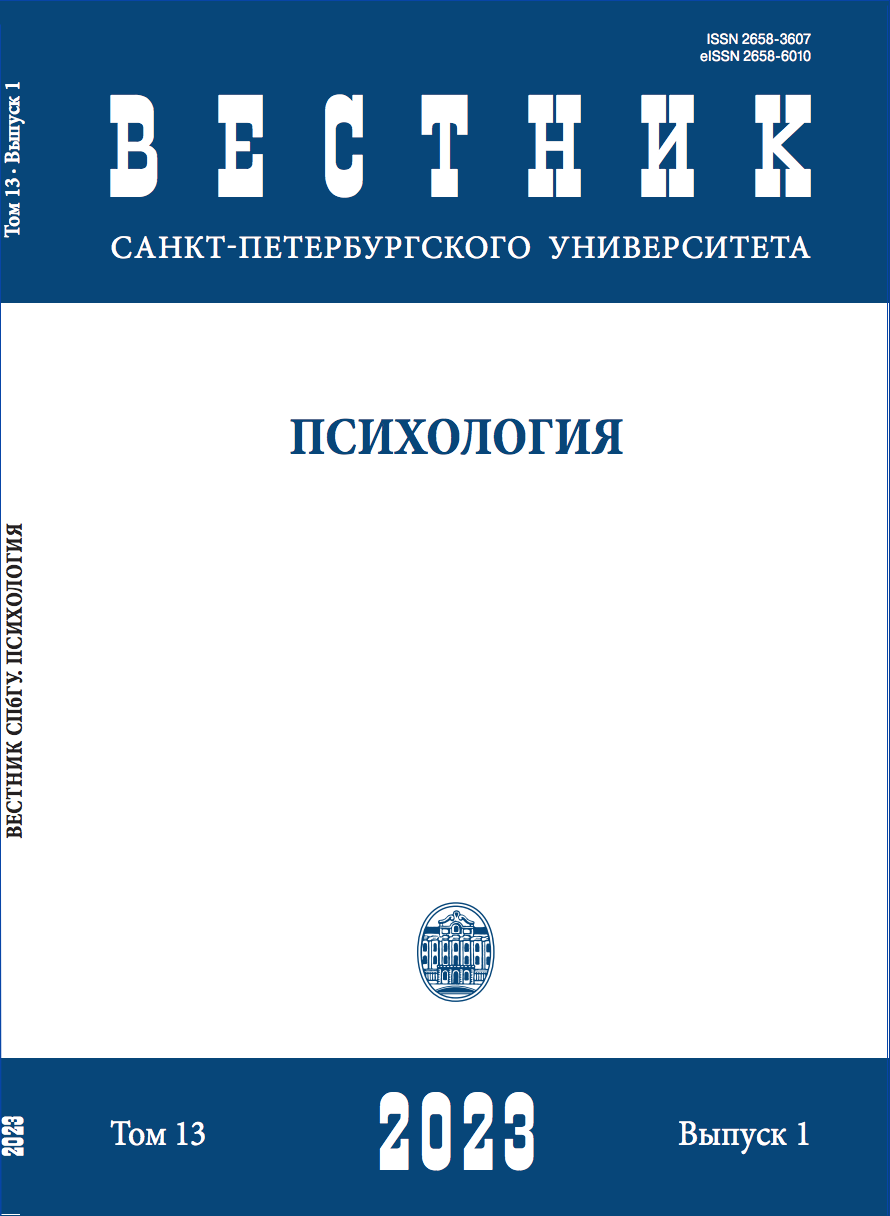Specifics of perception of conscience and life values of two generations (on the example of Russia and Georgia)
DOI:
https://doi.org/10.21638/spbu16.2023.104Abstract
The article examines the perception of conscience and life values of two generations of Georgians and Russians, which allows one to look at the events taking place in the current reality, not only from a theoretical point of view. In addition to the identified ethno-cultural and intergenerational differences, the paper presents the results of an empirical identification of the invariant of perception of conscience in two cultures. With the help of comparative and correlation analysis of empirical data, it was shown that conscience is actualized mainly in the area of normative or realizable significant life values. The interrelationships between the indicators of a person’s life values and perception of conscience established in the study can be interpreted as zones in which the work of conscience is carried out, also it can be supposed what the features of a conscientious act will be. The spiritual and moral sphere is inseparable from personal functioning, which is realized by each person in the process of life in order to fulfill his predestination. The study used both domestic and Western methods, which complicated the interpretation of the results and required additional analysis. We are talking about the results of processing the MJT method by G. Lind. In addition to this technique, the study used the Questionnaire of the Properties and States of Conscience by V. Kh. Manerov and “The Study of Value Orientations” by S. Schwartz.
Keywords:
conscience, morality, intercultural features of conscience, life values, invariant of conscience, transmission of moral experience
Downloads
References
uspehe-molodezhi-i-predstaviteley-starshego-pokoleniya-sotsiologicheskiy-aspektempiricheskiy-opyt (дата обращения: 04.11.2022).
References
Downloads
Published
How to Cite
Issue
Section
License
Articles of "Vestnik of Saint Petersburg University. Psychology" are open access distributed under the terms of the License Agreement with Saint Petersburg State University, which permits to the authors unrestricted distribution and self-archiving free of charge.




